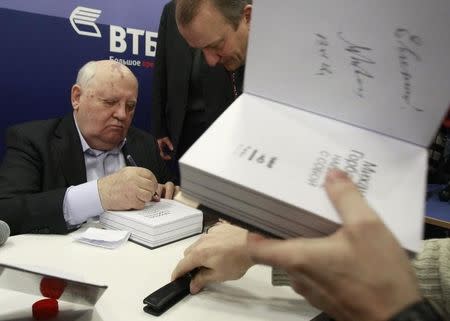Independent Russian newspaper receives "extremism" warning

By Alexander Reshetnikov MOSCOW (Reuters) - Russia's media watchdog has accused opposition newspaper Novaya Gazeta of violating anti-extremism laws and issued it with a formal warning, the paper said on Friday. Novaya Gazeta, founded by former Soviet leader Mikhail Gorbachev and renowned for its hard-hitting investigations and critical attitude towards the Kremlin, had been among the favourites to win the Nobel Peace Prize awarded on Friday. Media in Russia, especially television broadcasters, are tightly controlled, and President Vladimir Putin has been consolidating the state's grip on print and the Internet, where some dissenting opinions can still be expressed. The paper's editor, Sergei Sokolov, said he was worried that the move might be part of a coordinated state crackdown. Under Russian law, the paper could be closed if it receives a second such warning within 12 months. "In principle it all could have been funny, if not for that strange judicial system that Russia has. Because if it turns out to be some coordinated campaign then it will be very difficult for us to defend," he said. According to a letter from the watchdog, an article by Yulia Latynina, a well-known political commentator, violated a law against extremist activity which bans the incitement of social, racial, national or religious discord. The watchdog drew attention to comments by Latynina which said that "only three modern nations - the Jews, the Chinese and the Indians - can claim to have a thousand-year autochthonous (indigenous) culture. All the rest are an offshoot, a mix, dirty blood." Novaya Gazeta said on its website that its lawyers were studying the letter closely. "However, if one starts with initial impressions, probably we have to disagree with the opinion of the agency and prove our correctness by attracting high-class specialists in the area of linguistics," it said. Sokolov said that the media watchdog had "an opportunity to write any other warning using any possible pretext finding fault in any comma in our texts. "Accordingly, if we receive a second warning and we don't act on it, then this beautiful department goes to court to close the newspaper." The warning comes a few weeks after lawmakers approved a Kremlin-backed law that will sharply curtail foreign ownership in the media industry to protect "informational sovereignty". (Reporting by Reuters Television, writing by Jason Bush; Editing by Mark Trevelyan)

